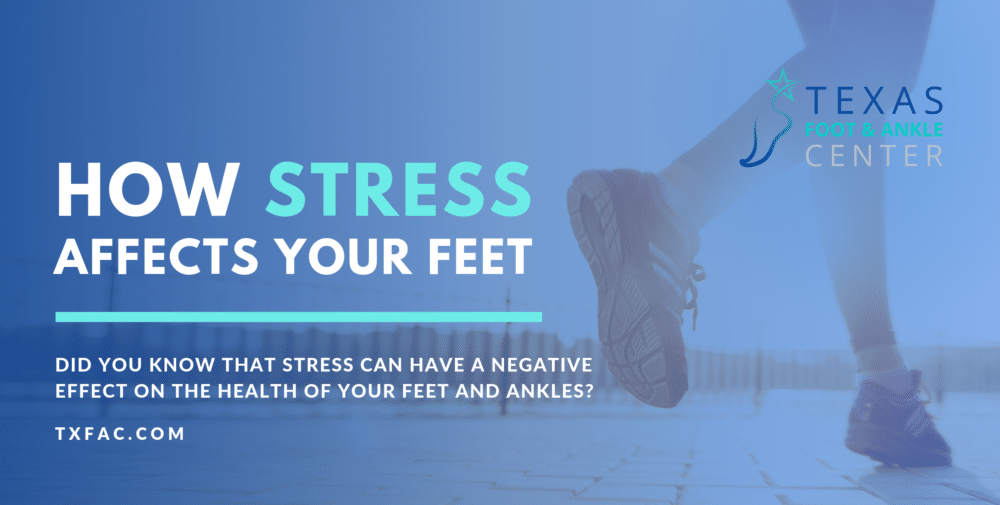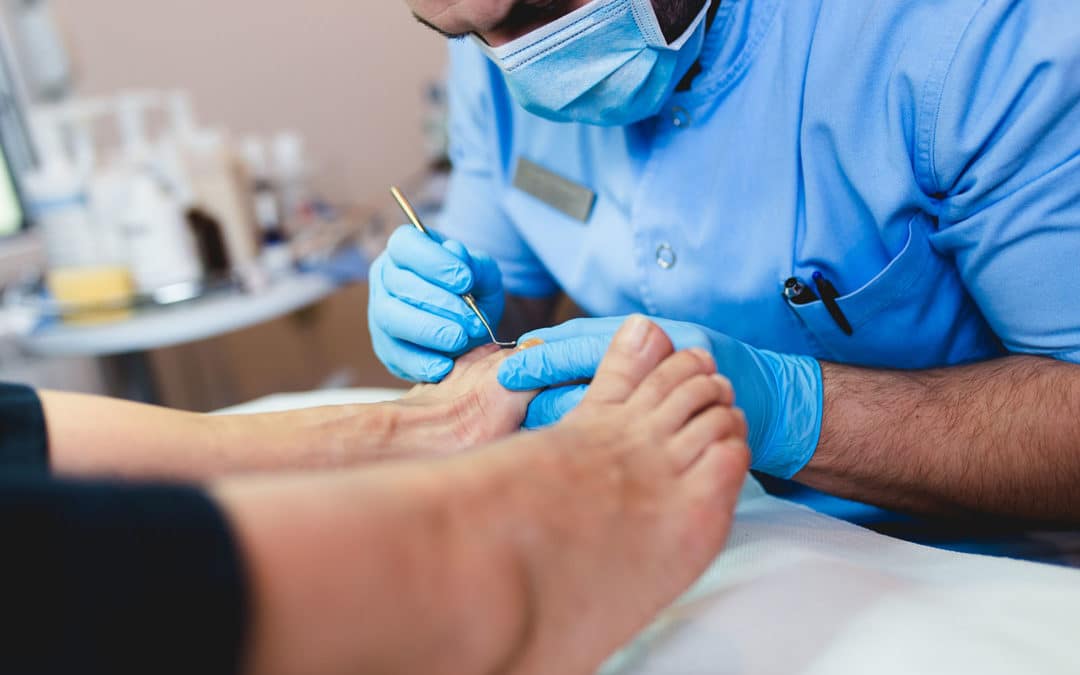Stress is described as a negative emotional state brought on by an unpleasant experience. We all feel stress as a result of events in our life. Stress can be short-term or long-term. In any case, it’s critical to pinpoint the root of your anxiety.
Stress affects not only your mental condition but also your physical health. It may result in high blood pressure, diabetes, obesity, insomnia, clenched or constricted muscles, and decreased flexibility.
Stress Hormones
When you stress, it causes the blood to circulate away from your feet. Stress produces hormones such as adrenaline and cortisol, which alter the function of your circulation and respiratory systems, muscles, and immunological function.
Stiffness and Tingling Sensation in Feet
This produces stiffness and/or tingling in your feet. The lack of flexibility in the lower extremities produces tightened muscles and weak flexibility that can contribute to the development of issues like plantar fasciitis and Achilles tendonitis. Untreated stress may exacerbate the symptoms of any of these pre-existing conditions and may also prolong the healing process.
Foot Pain
If you’re having problems keeping automatic abilities due to foot discomfort, it may be because your stress causes you to focus on manually controlling your movements. Manually controlled movements are common under stress. Breathing is the most common example. Those who are distressed tend to breathe mechanically rather than organically, which might increase their anxiety. The same holds true for your feet. People who are stressed may feel as if their walking or natural movement is strange, therefore they begin to walk improperly to alleviate this sensation. However, because your feet are intended to function in a specific manner, it frequently results in foot pain.
Cold Feet
Cold feet aren’t only an expression of doubt. It’s a commonly experienced symptom of stress. Poor blood circulation to your feet and ankles can trigger the effects of the “fight or flight” response, also known as hyperarousal or acute stress response. Increased sweat secretion plays another role in the development of cold feet. Sweat production is biologically primed to keep your body cool, and the feet have more than 250,000 sweat glands that require more hydration than other parts of your body.
Dry Skin and Related Conditions
The operation and management of gut bacteria and cortisol in your body can be influenced by stress. This may result in dehydration. The feet, as previously said, have a large number of sweat glands, which require more water than usual, especially in stressful situations. Dehydration may cause the skin of your feet to become irritated, sensitive, dry, and cracked. If left untreated, it can lead to unpleasant deep splits in the skin known as fissures. Other skin problems, such as eczema or psoriasis, can also develop.
Stress Relief for Foot Pain and Tips for Foot Care
At Texas Foot & Ankle Center, we care about you and your health. Our center is dedicated to helping you find stress relief for your foot pain and tips to maintain foot care. Below are the two most common and effective methods to manage and prevent stress.
Exercise
One of the most important activities to include in your routine is physical exercise. It lowers the chances of major physical and mental health problems. Exercising stimulates endorphins to be released in the brain. Endorphins are your physical innate response to reduce stress and pain. Other advantages include a stronger immune system, lower stress hormones including cortisol, better quality of sleep, and a strong metabolism.
Breathing Techniques
When you experience stress that feels too difficult to manage, you may start to hyperventilate. This is a common symptom for people who suffer from anxiety disorders or who are stressed regularly. Learning how to manage your breathing can aid in stress management and reduction. Here are a few breathing techniques to try the next time you’re feeling anxious.
Belly Breathing Technique
- Lie down and place one hand just above your navel and the other just below your rib cage. Place your other hand on your chest in the middle.
- In through your nose, take a deep purposeful breath, and allow the air to naturally push your hand against your tummy. Allow no movement of your chest.
- Exhale through your lips pressed and focus on your hand as it pushes inward. To let the air out, gently push your hand together.
- Repeat three to ten times.
4-7-8 Breathing Technique
- Find a relaxing spot to sit or lie down.
- Place one hand on your abdomen and the other on your chest’s midsection.
- Count to four silently at a normal pace to take a deep, deliberate breath using force from your stomach.
- Count silently from 1 to 7 while holding your breath.
- By the time you’ve counted to eight, completely exhale to expel all the air from your lungs.
For more information on stress relief and foot care, please call us today at 214-660-0777 or contact us today to relieve your feet free from stress!


